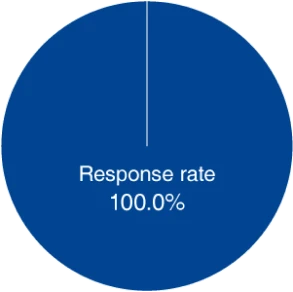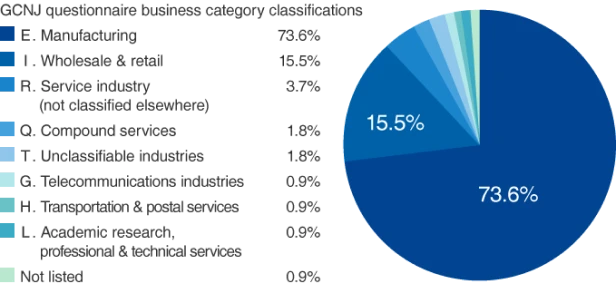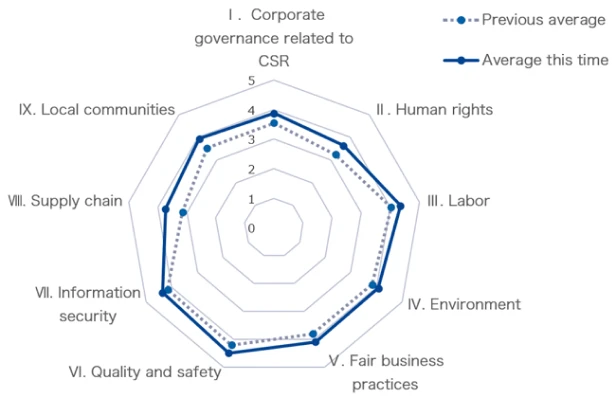CSR Procurement Self-Assessment Aggregate Results
We would like to report on the details of the FY2021 CSR Procurement Self-Assessment, which has been conducted in stages since FY2016.
Outline of the Survey
Targets
Raw material vendors & promotional vendors
Number of targets
110 companies (92 raw material vendors and 18 promotional vendors)
Survey period
December 10, 2021 (Friday) 〜 January 11, 2022 (Tuesday)
Survey items (9 in total)
Ⅰ. Corporate governance related to CSR Ⅱ. Human rights Ⅲ. Labor Ⅳ. Environment Ⅴ. Fair business practices
Ⅵ. Quality and safety Ⅶ. Information security Ⅷ. Supply chain Ⅸ. Local communities
Response Results
Response rate
100.0% We received responses from all 110 companies.

Breakdown of attributes by GCNJ classification of suppliers
The following is a breakdown of the 110 companies, and the manufacturing, wholesale, and retail industries accounted forare around 90% of the total.

Survey results
Compared to the results of the previous survey, average points increased in all nine items.
Based on the results of the FY2021 survey, no risks were found for suppliers. We believe that these
results reflect the ongoing efforts between the Mandom Group and its suppliers.

| Theme | Topic | Average score(out of 5) | |
|---|---|---|---|
| Last time FY2017,FY2018 |
This time FY2021 |
||
| Ⅰ. Corporate governance related to CSR |
|
3.55 | 3.87 |
| Ⅱ. Human rights |
|
3.24 | 3.64 |
| Ⅲ. Labor |
|
4.02 | 4.34 |
| Ⅳ. Environment |
|
3.83 | 4.08 |
| Ⅴ. Fair business practices |
|
3.81 | 4.10 |
| Ⅵ. Quality and safety |
|
4.21 | 4.50 |
| Ⅶ. Information security |
|
4.15 | 4.36 |
| Ⅷ. Supply chain |
|
3.14 | 3.73 |
| Ⅸ. Local communities |
|
3.53 | 3.93 |
Future initiatives
By implementing regular self-assessments, we will continue holding discussions with our suppliers while acquiring the understanding and cooperation of our suppliers, as well as working to make the supply chain more transparent in stages.